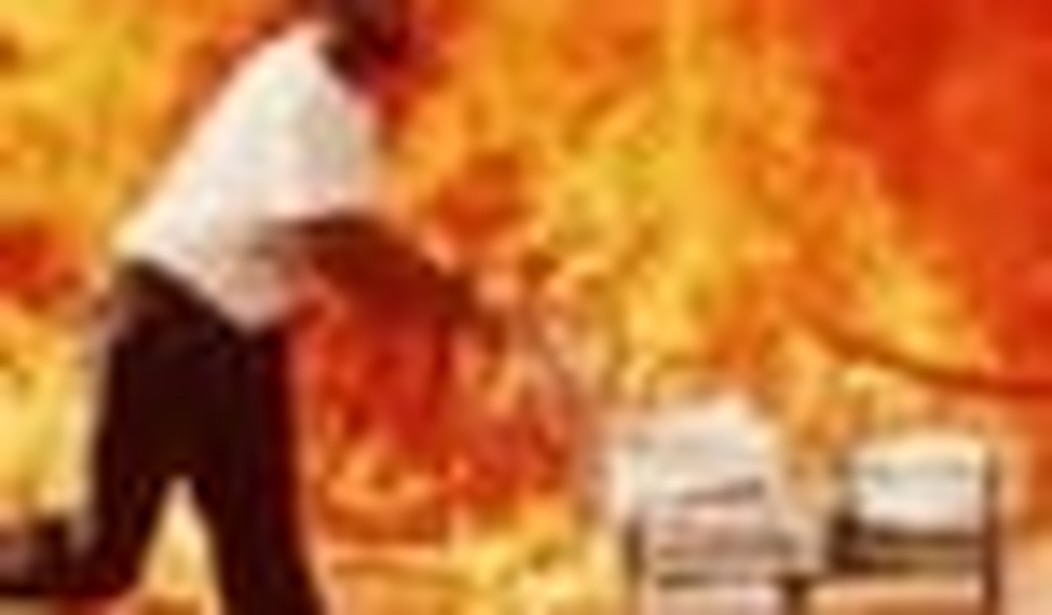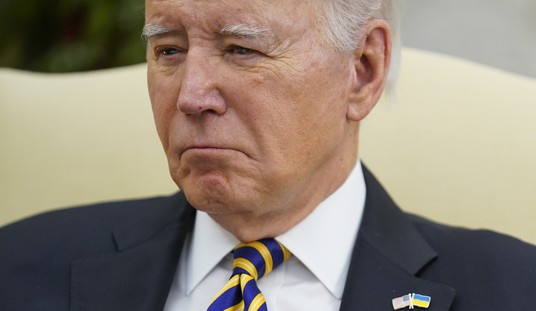Over the last week, the mainstream media has approached the twentieth anniversary of the Los Angeles riots as if it were the run-up to the Academy Awards. One breathless reporter from a national network asked: “Can you find me some Korean merchants who had their stores looted and burned?” Others asked me if I could locate black folks who had looted.
While I obviously rejected this nonsense, one local television station featured an interview with Henry Watson, a local thug who had literally danced a jig on Reginald Denny’s head in 1992. The unrepentant Watson told the reporter he would do it all again if a Florida court doesn’t find George Zimmerman guilty. Watson explained that when he had his foot on Denny’s head, he was thinking about one thing: “white America.”
I suppose NBC thought this made for great television.
The Los Angeles Times devoted two days of sympathetic front-page coverage to an interview with Rodney King, the drunken motorist who took LAPD officers on a high-speed chase that ended with him being beaten into submission. After winning over $1 million in a city settlement, King is now broke, an alcoholic, and a routine law-breaker. As the interviews revealed, King seemingly has no interesting observations about much, including the riots or his beating.
Is any of this really news?
It obviously isn’t, yet the liberal mainstream press will exploit urban nihilism from twenty years ago to hint that racial issues from that time continue to haunt us today. Divisions do exist, but today they are mostly nurtured by the mainstream media on one hand and by opportunistic black leaders on the other.
Twenty years ago, Los Angeles revolved around a liberal political axis, just as it does today. It was no shock when local political elites declared that L.A.’s riots were a “rebellion” against racism, the police, and poverty. But while that era’s LAPD routinely engaged in a particularly robust “command and control” policing, by the 1990s a liberal-dominated Los Angeles (with a black man, Tom Bradley, as its mayor) was hardly a West Coast imitation of Selma, Alabama.
The predictable liberal viewpoint that racism was the major cause of the riots masks another reality. Like other major cities, Los Angeles’ poor black neighborhoods suffer from the effects of the 60s-era welfare state which bred black anger and dependence. Compounding this was the Black Power movement that challenged the integrationist stance of most civil rights leadership. They argued that “power comes from the barrel of a gun,” and claimed that America “owed things” (including slavery reparations) to black Americans. This justified the looting of televisions, refrigerators, and sofas from local merchants.
These conditions gave rise to homicidal street gangs, sloppy attitudes about education, family structures that had come apart at the seams, and a predatory black leadership that promoted Afrocentric schemes and preached victimization.
The late 1980s were the zenith of a devastating crack cocaine epidemic that swept South L.A., something exploited by gangs, all with homicidal intentions. In South L.A. ,there were 143 homicides in a twelve square mile area from Watts to Inglewood. At the intersection of Florence and Normandie Avenues, the Eight Tray Gangster Crips lurked. This was one of the city’s most notorious street gangs.
On April 29, twenty years ago, a jury in Simi Valley handed down a “not guilty” verdict in the trial of the four police officers charged with beating Rodney King. By later that afternoon, dozens of Crips, local hoodlums, and other criminal elements pounced. They began attacking non-black motorists at the intersection of Florence and Normandie. It was here that local thugs, including Henry Watson, beat white truck driver Reginald Denny nearly to death.
At the moment Denny was being attacked like hyenas on a gazelle, I sat in my office only a few miles north of the rapidly escalating mayhem. At that time I was the executive director of the Southern Christian Leadership Conference, the civil rights organization that was co-founded by Martin Luther King, Jr. But while Dr. King was known for his non-violent views, violence, arson, and death was the order of the day in Los Angeles for the next five days.
But what has changed in Los Angeles since the events of twenty years ago?
The LAPD has clearly reformed many of the old policies. Many residents of South L.A. see this as a good thing, while others are less complimentary. They say the “kinder and gentler” LAPD has created a less effective force, often forced to tip-toe on the eggshells of political correctness.
Another longstanding issue has largely disappeared from the dialogue: the relationship between Korean merchants and black patrons, then referred to as the “black-Korean conflict,” has been replaced by far more peaceful relationships. One of the main features of this change is that many of the race-hustlers who organized boycotts and protests at Korean merchants’ stores have simply moved on to exploit other issues since the riots.
While the media has launched a feeding frenzy of “riot coverage,” residents of L.A. have seen no reason to obsess over a particularly ugly element of L.A.’s past. The city’s liberal leadership, however, couldn’t pass up the opportunity to lecture about the need for people to “just get along.” What they’ve failed to notice is that most people think the city’s population is doing just that. Loyola Marymount University’s Center for the Study of Los Angeles recently conducted a poll about the area’s race relations. They discovered that seven out of ten people think the various racial and ethnic groups are getting along just fine.
Nonetheless, members of the mainstream media continue to ask: can riots break out in L.A. again? Conditions in L.A. make this a remote possibility. However, recent events have made the possibility of urban riots elsewhere a reasonable speculation. In the wake of the Trayvon Martin shooting in Florida, black leaders have ramped up the race rhetoric and primed the pump of expectations for the upcoming trial of George Zimmerman. What if a court can’t convict Zimmerman?
That’s beginning to look highly likely. Based on the evidence that’s been made public, and seemingly just about all the evidence that exists, it now seems evident that Angela Corey, the Florida special prosecutor, overcharged when she laid out her case for second-degree murder, apparently in an attempt to appease the racial vultures that had gathered in Sanford, Florida.
Despite growing signs that convicting George Zimmerman will be a difficult task at best, Trayvon Martin’s family, national black leaders, and black activists all agree that “justice” will only be materialized by the conviction of Zimmerman. If this expectation isn’t achieved in a court of law, activists have been clear that there will be “no peace.”
The specter of black nihilism from twenty years ago hangs heavy over the proceedings in Florida.








Join the conversation as a VIP Member